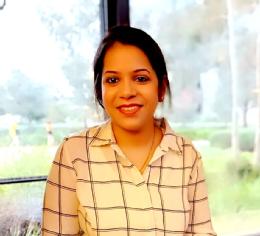Dr Minni Singla
What motivated you to work with the Monash Warwick Alliance?
I came across Monash Warwick alliance via Monash University web page while looking for a research position after migrating to Australia. I thought of it as an opportunity to be a part of the research activities with two well reputed institutes. I was highly motivated with the idea of working with two world-class institutions that were coming together to accelerate the exchange of ideas and information.
What are your top three collaboration achievements so far?
As a new member of staff during the Covid pandemic, it has been a challenge to join into a global collaboration. However, the staff and faculty members from both institutes were so welcoming and helpful which made my journey very smooth. Despite the time difference between Australia and the UK, we do manage to keep in touch to discuss any queries, to exchange ideas and sometimes just to greet each other which in itself is a big achievement I think, a much needed thing during a pandemic. As a team here at Monash we would do our morning coffee meetings where we discuss all kinds of things including footy, weather, Covid and recent discoveries.
What do you hope to ultimately achieve through your collaboration?
Monash Warwick alliance gave me a chance to pursue my research while networking with people from diverse cultural backgrounds coming from all walks in life. I believe that when you have an opportunity to work with people from different backgrounds, your eyes open to different perspectives. By combining our skill sets we can develop much needed tools to improve our understanding of the Standard Model which explains what the world is and what holds it together. In addition to that we will also be able to research at the cutting edge of data science and machine learning which will have wider impacts on society.
Can you share one fun fact about yourself or your work?
I am the Junior Coordinator for the Large Hadron Collider beauty (LHCb) simulation group at CERN, Switzerland (50+ physicists) representing Monash University.The LHCb experiment specializes in investigating the slight differences between matter and antimatter by studying a type of particle called the "beauty quark", or "b quark".
